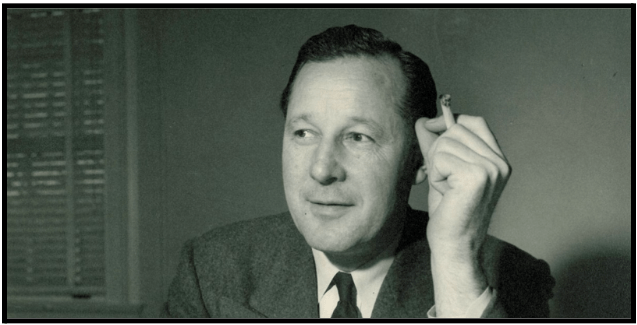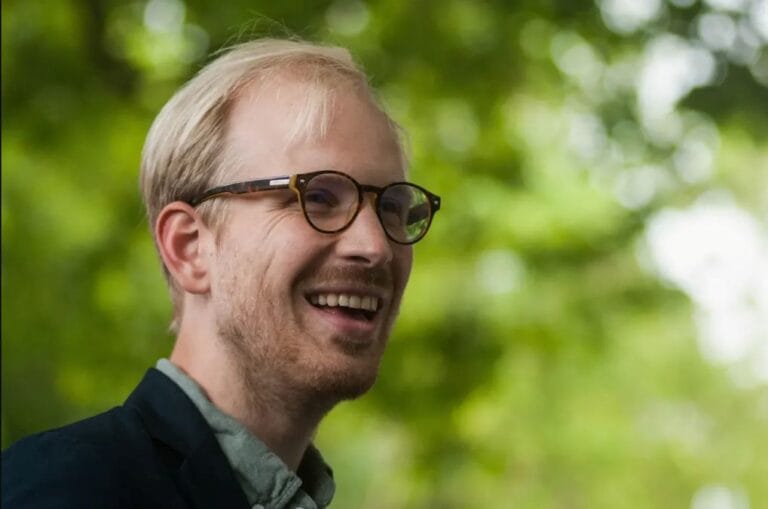Adam Smith on talent. Astral Codex Ten shares a delightful disagreement. Jeff Hawkins cautions against false beliefs. Don Boudreaux encourages little drops. And Carlo Rovelli says uncertainty is good.
Talking Big Ideas.
“Ideas shape the course of history.”
~ John Maynard Keynes
This newsletter focuses on Big Ideas. We discuss why they matter and how we can bring them to life. Today’s piece highlights five ideas – old and new – that are worth exploring.
***
IDEA: Talent is a skill we build.
Adam Smith published his magnum opus, The Wealth of Nations, the year America declared independence (1776). Among the most influential books in history, it’s filled with big ideas – including Smith’s insight that talent is primarily a function of habit, custom, and education:
The difference of natural talents in different men is, in reality, much less than we are aware of; and the very different genius which appears to distinguish men of different professions, when grown up to maturity, is not upon many occasions so much the cause as the effect of the division of labour. The difference between most dissimilar characters, between a philosopher and a common street porter, for example, seems not to arise so much from nature as from habit, custom, and education.
I often hear people complain that they are not “natural” at public speaking. But excellence isn’t natural. Excellence is built with effort over time. We get better at speaking – and all other skills – when we make time to learn, practice, and iterate. Our progress is often slow at first and then suddenly leaps ahead.
***
IDEA: World-class experts embrace disagreements.
This week, Astral Codex Ten highlights a disagreement between Daniel Kahneman – the Nobel prize-winning author of Thinking, Fast and Slow – and Wharton professor Matthew Killingsworth:
Really excellent adversarial collaboration between Daniel Kahneman and Matthew Killingsworth on the relationship between income and happiness. Kahneman previously found that more money didn’t make people happier past about $100K/year. Killingsworth previously found it did. They worked together and found that Kahneman was right for the least happy 20% of the population and Killingsworth was right for everyone else. This is a rare but welcome example of going from a failed replication to an actual understanding of what went wrong and what the truth is.
Most people seek out evidence to prove their ideas right. The best scientists do the opposite, embracing criticism and evidence to prove their ideas wrong.
We tend to live in bubbles that reinforce our worldviews and often refuse to consider or believe contrary ideas. Millions of us use social media every day to attack anyone who thinks differently. Daniel Kahneman and Matthew Killingsworth show us there is a better path.
***
IDEA: False beliefs are more dangerous than AI.
Jeff Hawkins is a world-renowned neuroscientist and computer engineer. In his book A Thousand Brains: A New Theory of Intelligence (2022) he writes:
I am concerned about the future . . . and even the long-term survival of our species. One of my goals is to raise awareness of how the combination of the old brain and false beliefs is a real existential risk, far greater than the presumed threat of AI. . . .
Many of the problems we face – from wars to climate change – are created by false beliefs . . . if every human understood what was going on in their head, I believe we would have few conflicts and a sunnier prognosis for our future.
We all feel pressure to conform to prevailing ideologies and tribal dogma. The philosopher Vaclav Havel poetically put it this way: “In everyone there is some willingness to merge with the anonymous crowd and to flow comfortably along with it down the river of pseudo-life.” We can each choose to rise up and resist this pseudo-life – and the dangerous false beliefs it invariably spreads.
***
IDEA: Little drops are better than big splashes.
I distinctly remember reading Don Boudreaux’s article Drops & Splashes as an intern living in the basement of the old FEE mansion in New York. It opened my eyes to the beauty of all the progress happening around us:
Think of human material prosperity as water contained in an enormous swimming pool. The higher the water level, the greater our prosperity. . . .
How is this pool filled? Mostly, tiny drop by tiny drop. Millions of people line the edge of the pool, each dripping in a drop or two of additional prosperity from time to time. Importantly, no single drop has any noticeable effect on the prosperity level. . . .
The irony is that the bigger and more noticeable the splash, the more likely it is to be lionized by academics, pundits, and politicians. . . . But because splashes are wild, much of any splash—especially big splashes—ends up outside the pool and is lost.
After my internship, I moved to Washington DC. Out of all the famous people there, Don Boudreaux was the person I most hoped to meet. Cool enough, I not only met Don, he became a friend and mentor.
I still think about Don’s guidance to not get distracted by big splashes. Instead, find little ways to be useful to the people around you. Develop your talents and build things that help others. If all of us can make the world just a little bit better, the results will be profound.
***
IDEA: Embrace uncertainty to learn and grow.
Carlo Rovelli is a theoretical physicist who brings complex science to life. His books have sold millions of copies in more than 50 languages. He just released Anaximander and the Birth of Science:
Anaximander . . . set in motion . . . a search for knowledge based on the rejection of any obvious-seeming “certainty” . . . the first great scientific revolution in human history [was] Anaximander’s revolution. . . .
Humanity’s common error is to fear . . . fluidity and seek absolute certainty . . . this attitude is naive and counterproductive to the quest for knowledge. Science is the human adventure of accepting uncertainty, exploring ways of thinking about the world, and being ready to overturn any and all certainties we have possessed to this point. This is among the most beautiful of human adventures.
All growth happens when we push ourselves into discomfort. Our current beliefs are comfortable. Anaximander taught us to have the courage to reject dogma and supposed certainties, and instead follow our curiosity and whatever changes it brings. This is the path to fulfillment and progress. I encourage you to take it!
***
Big Ideas are all around us.
The more we explore them, clarify them, and bring them to life, the better chances we have of building a prosperous and awe-filled future.




